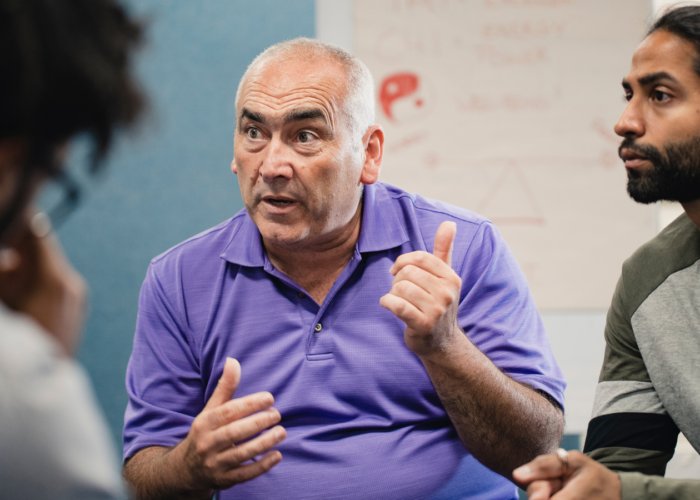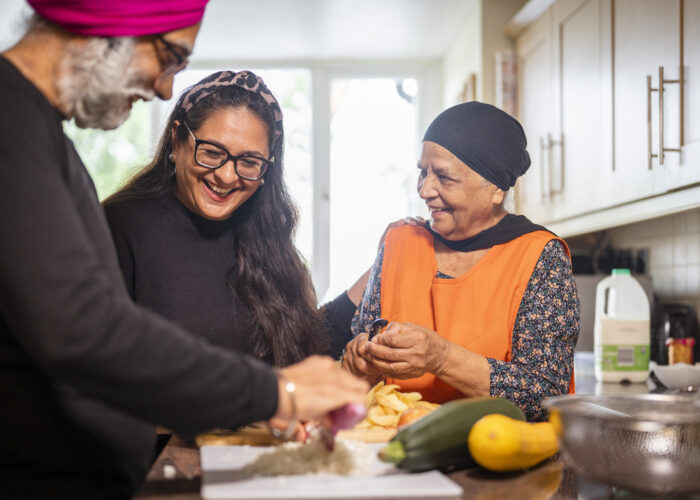 In 2018 Imperial College Health Partners launched bursaries offering to pay 50% of the tuition fees for professionals working in healthcare, within North West London, to undertake an MSc programme at a UK university. Today, we are proud to be able to publish accounts written by some of the students who won those bursaries, revealing the impact of their studies.
In 2018 Imperial College Health Partners launched bursaries offering to pay 50% of the tuition fees for professionals working in healthcare, within North West London, to undertake an MSc programme at a UK university. Today, we are proud to be able to publish accounts written by some of the students who won those bursaries, revealing the impact of their studies.
In collaboration with the National Patient Safety Improvement Programmes, ICHP had the privilege of providing several bursaries to support colleagues in the sector undertaking postgraduate studies in Patient Safety. This initiative did not only increase capacity for patient safety in the sector, it also increased participation in our patient safety collaborative and a number of projects which had direct impact of improving the quality of patient care.
The following are the experiences of three bursary winners, in their own words.
Bilam Patel, Dietitian, Imperial College Healthcare NHS Trust
 I was awarded the MSc Bursary by ICHP to enable me to enrol on the MSC in Patient Safety in 2018.
I was awarded the MSc Bursary by ICHP to enable me to enrol on the MSC in Patient Safety in 2018.
This was an opportunity to learn more about healthcare from a quality and safety lens, and to bring this back to my clinical role Nutrition and Dietetics at Imperial College Healthcare NHS Trust.
Since qualifying as a Dietitian nine years ago, I have worked in NHS hospitals and thrived in teaching environments, with a passion to learn and research how nutrition impacts clinical outcomes in healthcare. My specialist field of practice is cancer dietetics where we have seen national targets set by the NHS Fiver Year Forward view to achieve world class cancer outcomes. Since the Independent Cancer Taskforce released its six strategic priorities, I have been particularly interested in the fourth priority to Transform our Approach to Support People Living with and Beyond Cancer.
July 2019 saw the launch of the Macmillan-RCoA-NIHR Prehabilitation for Cancer Therapy Principles & Guidance document, and whilst multiple stakeholders are involved in the setting up of Prehabilitation services, it has already received some criticism in its ambition. There is consensus that addressing this is extremely difficult to model (secondary to social inequalities and the ‘one size fits all’ approach being flawed in behaviour change theory). The degree of peer support required for success is also absent from current position statements from expert providers. What is clear is that many patients are already engaged and the appetite for positive change is the greatest we have seen since Prehabilitation services first started in the UK. Prehabilitation is relatively early stage in its development, despite its media attention, but this gives rise to opportunities for change in the landscape of how sustaining innovations are typically adopted in healthcare.
One of the most successful cases of Prehabilitation is PREPARE for Surgery – An education and support programme for upper gastrointestinal cancer patients undergoing surgical resection, at Imperial College Healthcare NHS Trust. Founded in 2013, the programme was designed to help patients undergoing oesophago-gastric cancer surgery to improve functional and psychological wellbeing, and nutritional status. Core to the programme is a focus on improving patient engagement and quality of life. Working in the UGI team, I have seen how this has transformed patient’s lives and improved clinical outcomes. Following this MSc, I aspire to transform dietetic services to ensure cancer patients have equitable access to Prehabiliation advice across all tumour groups.
Jess Peck, Clinical Quality Manager, NHS England and NHS Improvement – London
 I was working as Head of Patient Safety at NW London Collaboration of CCGs when I was awarded a 50% bursary from Imperial College Health Partners in July 2018 to study an MSc in Patient Safety at Imperial.
I was working as Head of Patient Safety at NW London Collaboration of CCGs when I was awarded a 50% bursary from Imperial College Health Partners in July 2018 to study an MSc in Patient Safety at Imperial.
I have had a career in health spanning 30 years with the majority spent working in the NHS. The NHS has offered a wide variety of experiences and opportunities from the foundations of nursing and direct patient care in high acuity and outpatient settings to undertaking service improvement in cardiac services, commissioning and latterly as a quality and patient safety practitioner. I have had the privilege of working with inspirational leaders in patient safety who work tirelessly to optimise harm-free-care for patients and staff and collaborate in enabling just cultures and psychology safety.
My motivation to pursue this MSc was a thirst to broaden my knowledge and understanding of patient safety by exposure to different views and perceptions informed by research that would both influence and enhance my practice and bring academic rigour to my thinking. The course thus far has exceeded my expectations; it has offered exposure to world renowned patient safety leaders and experts in an educational establishment that is at the forefront of patient safety research and translation. The quality of tuition has been exceedingly high and has given access to eminent researchers such as Professors Julie Reed and Trish Greenhalgh, Dr David Nabarro, Hutan Ashrafian and Talya Porat.
The course has introduced key patient safety milestones from To Err is Human, to the development of patient safety movements and the influences of other safety critical industries on health care through human factors thinking, safer system design and heralding the paradigm shift from Safety 1 to Safety 11.
Thus far my MSc experience has had a profound impact on my patient safety practice. It has both increased my confidence and effectiveness as a patient safety leader and has contributed significantly to my professional development which will have a trickle-down impact on patient care across London. My current role is London-wide and will be supporting the implementation of the national patient safety strategy in London. This course has broadened my understanding of the rationale and essential components of this policy change that should facilitate safer systems for patients and all staff in the NHS.
Yohinee Rajendran, Senior Anaesthetic Registrar, University College London Hospitals NHS Foundation Trust
 I was awarded the Post Graduate Certificate bursary by ICHP in 2018 in order to undertake the Imperial PG Certificate in patient safety. I have been a qualified doctor for nearly twelve years and an Anesthetist for over eight years. Having worked in Edinburgh, Australia and London, I have developed an aptitude to immerse myself into new teams, learn departmental values and take on patient safety matters. Anaesthesia is a specialty at the forefront of patient safety, this is reflected by multi-disciplinary simulator training, clinical governance meetings, pioneering checklists and stringent examinations and appraisals. I have always shown enthusiasm and motivation in education and quality improvement projects throughout my career. By undertaking the Imperial Patient Safety Certificate, I have been able to harness theoretical concepts in order to give structure and sustainability to my patient safety projects. This will benefit the profession and patient safety elements to my future trust when I become a consultant.
I was awarded the Post Graduate Certificate bursary by ICHP in 2018 in order to undertake the Imperial PG Certificate in patient safety. I have been a qualified doctor for nearly twelve years and an Anesthetist for over eight years. Having worked in Edinburgh, Australia and London, I have developed an aptitude to immerse myself into new teams, learn departmental values and take on patient safety matters. Anaesthesia is a specialty at the forefront of patient safety, this is reflected by multi-disciplinary simulator training, clinical governance meetings, pioneering checklists and stringent examinations and appraisals. I have always shown enthusiasm and motivation in education and quality improvement projects throughout my career. By undertaking the Imperial Patient Safety Certificate, I have been able to harness theoretical concepts in order to give structure and sustainability to my patient safety projects. This will benefit the profession and patient safety elements to my future trust when I become a consultant.
This course has allowed me to develop my understanding of health economics, the science behind quality improvement and a better understanding of healthcare as a complex system. These theoretical and practical modules greatly enhanced my knowledge and perception of how to instigate sustained change within the NHS at local and system level. I was able to utilise this experience during my Patient Safety fellowship at the Royal Marsden Hospital. I obtained funding from the Royal Marsden Trust business management team in order to develop a ‘5 steps to safer surgery WHO checklist’ eLearning package. I led the trust wide project and worked alongside senior clinical leaders, the business team, learning and development team and managed the process of using a production company for filming and editing.
Anaesthetic training highlights the importance of combining excellent clinical training alongside non clinical competencies. I have participated in trust level patient safety board meetings and went on to undertake a further management fellowship. I feel better equipped to enter my last year of training and pave my way to becoming a well-rounded future NHS leader.



